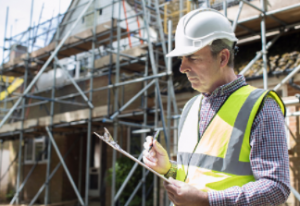A building inspector is a professional employed either by a local government, a town or a county and is qualified in one or more fields to make detailed professional assessments concerning whether a particular building meets building code standards. Building inspectors must complete a minimum educational requirement and obtain a business license to practice professionally as a building inspector in most states. The need for building inspectors is genuine. Due to the increasing longevity of buildings, it is also becoming more critical for building inspectors to maintain a high level of education to maintain a competitive edge over other candidates.
 Building inspections require detailed knowledge of both engineering and construction science. It ensures that the construction process is completed correctly and prevent unexpected problems down the road. In providing this type of knowledge, building inspectors are often required to have degrees in engineering or construction science and a strong understanding of local building regulations. Read this article now.
Building inspections require detailed knowledge of both engineering and construction science. It ensures that the construction process is completed correctly and prevent unexpected problems down the road. In providing this type of knowledge, building inspectors are often required to have degrees in engineering or construction science and a strong understanding of local building regulations. Read this article now.
Structural Analysis: All building inspections require the structural engineers to complete structural analysis, which involves identifying any problematic conditions that could affect the project and providing recommendations on how to correct such conditions. It can range from the simple and finding a crack in the foundation to significant renovations such as new roofs and plumbing. All inspections should include a structural analysis because, without it, the inspection report is essentially worthless. A qualified building inspector will be able to provide structural analysis reports that are both reliable and comprehensive. It should discuss with the client the available options to correct problems that have been identified during the building inspection.
Compliance With Codes: All building inspectors should comply with all applicable codes. It can be a very labour-intensive task since the majority of regulations are updated annually. Compliance applies to mechanical systems and includes heating systems, electrical systems, water systems, vapour control systems, and HVAC. All inspectors should take this responsibility very seriously because building inspectors are responsible for ensuring compliance with regulations within the construction industry and providing advice to clients on how to ensure compliance. In addition, this allows the building inspector to provide sound advice about the safety regulations that apply to their operations and help them design a safe facility for their employees. Read this article now.
Specific Focus: All inspections should focus on particular aspects of a construction project. It is the building inspector’s job to identify all issues and concerns that may arise during construction. For example, if there are loose tiles in a bathroom and the tiles are loose so that water can seep under the floor, this becomes an issue. In addition, if there is inadequate lighting in a room because there is not enough overhead lighting or the construction site has not been adequately lit, these issues need attention. All inspections should provide a specific focus on areas that may pose a health or safety risk. Read this article now.